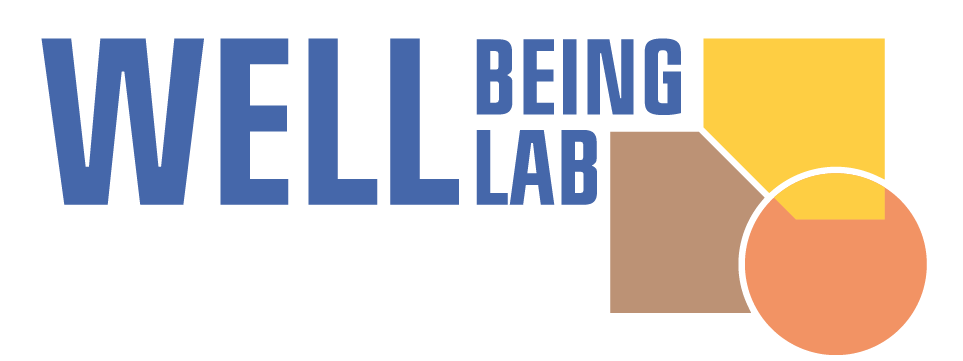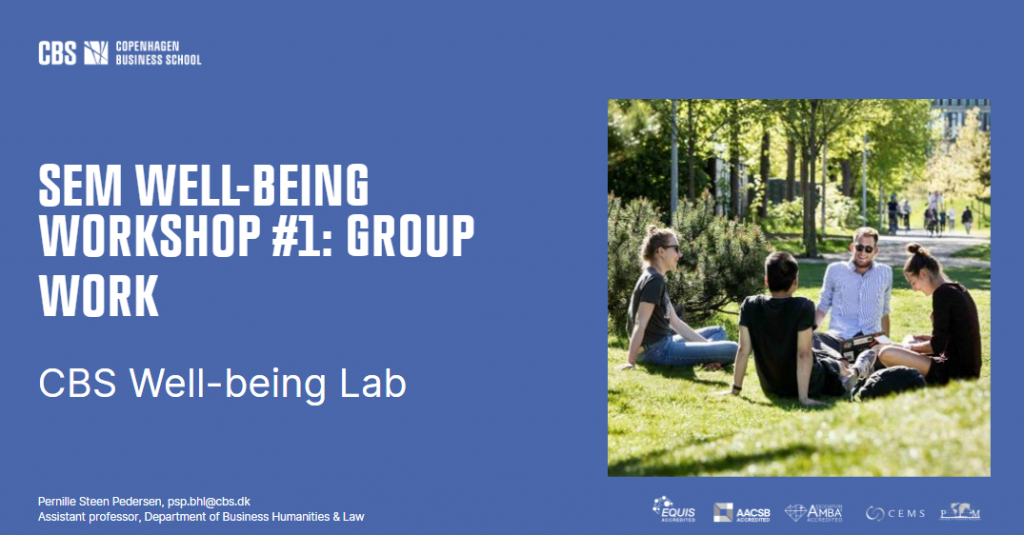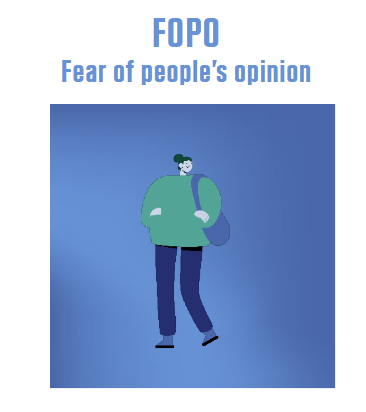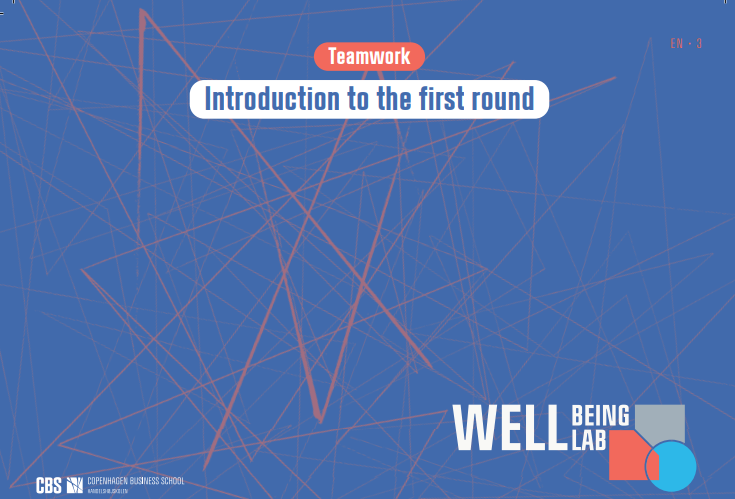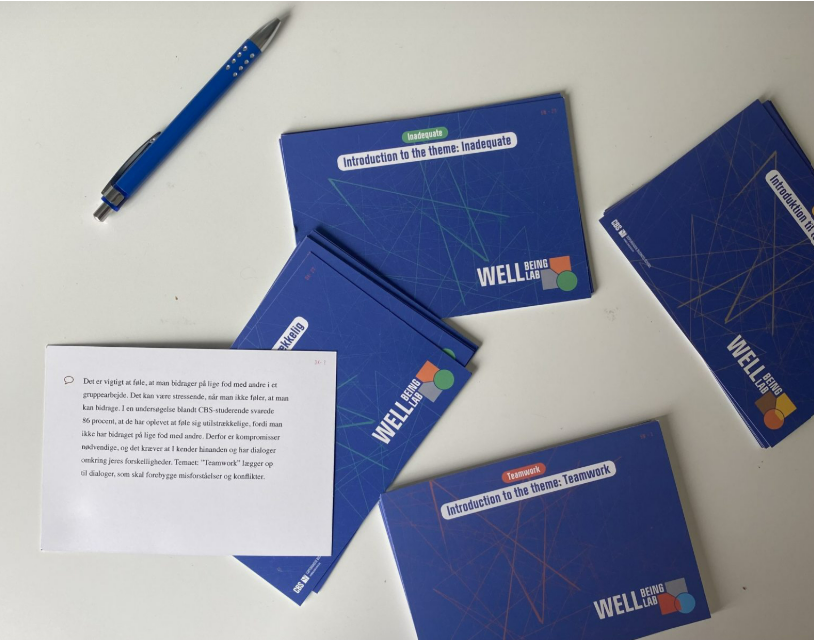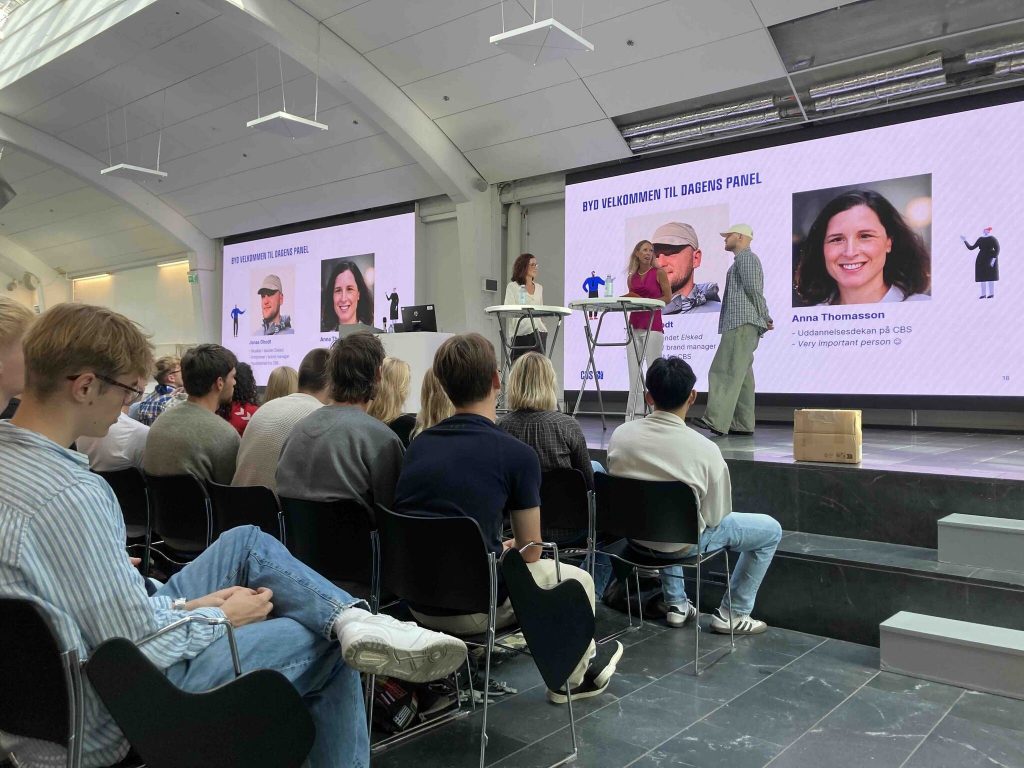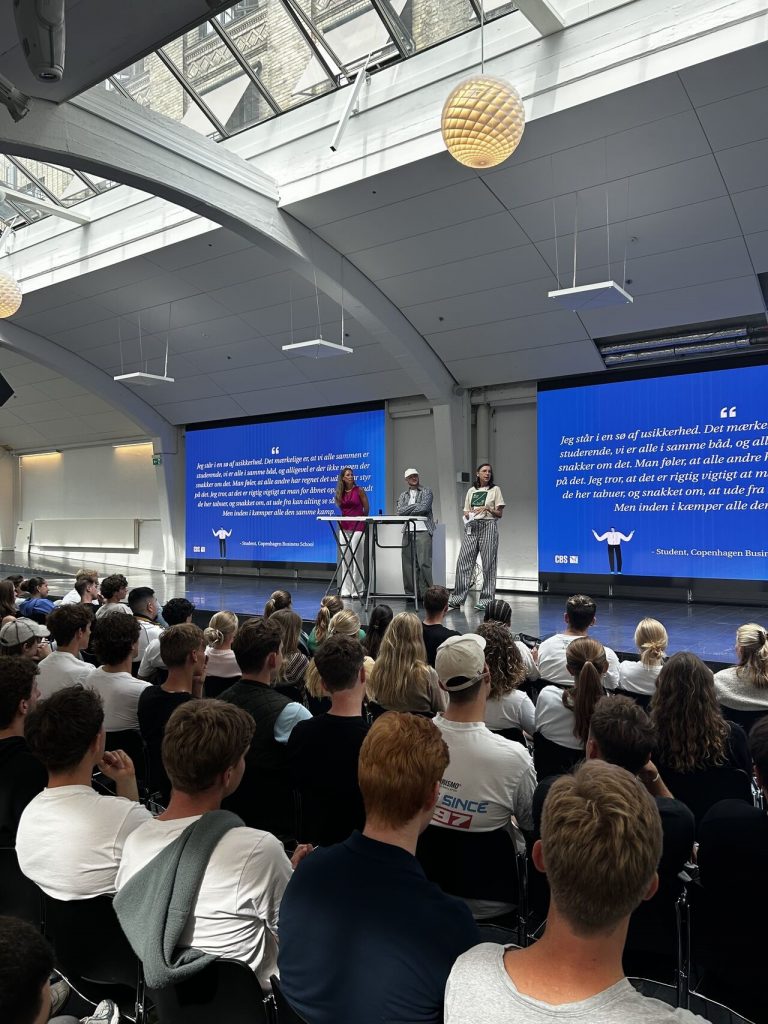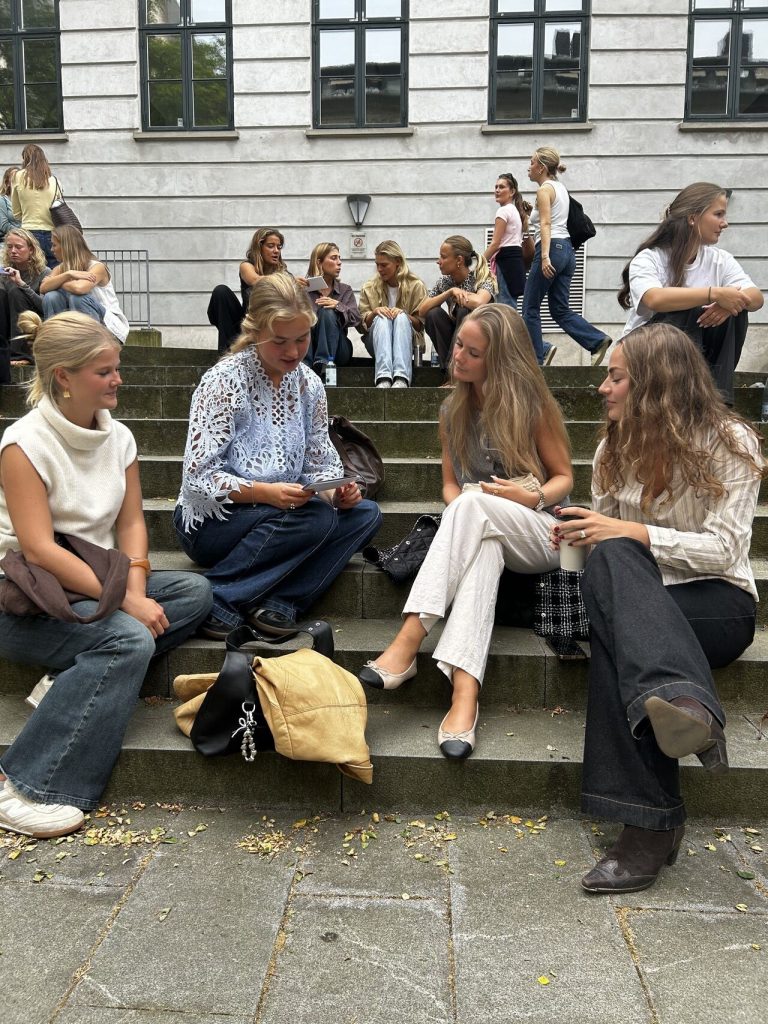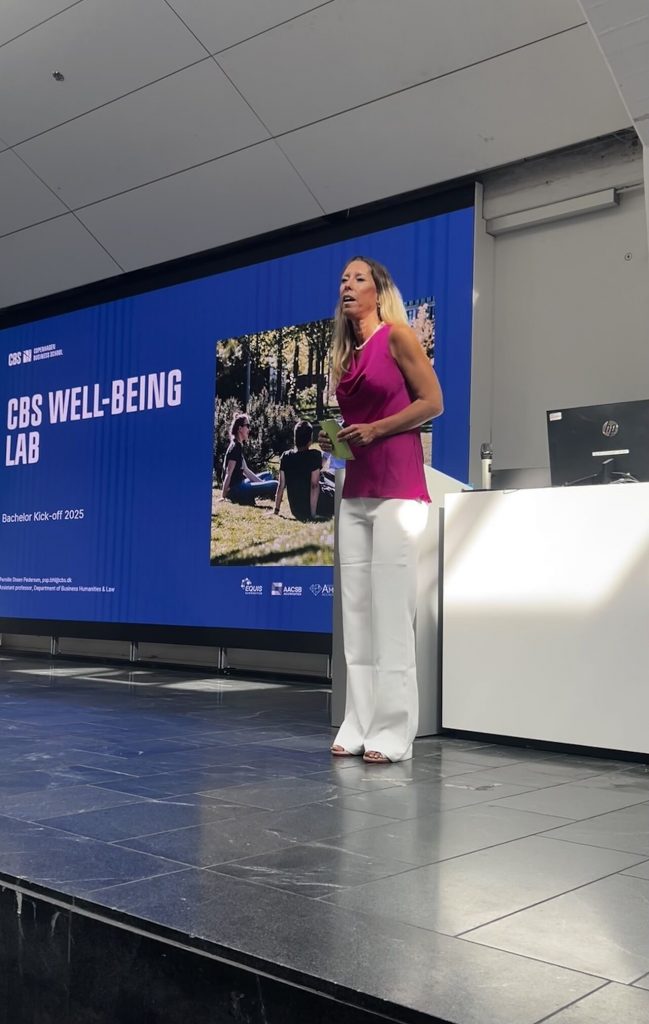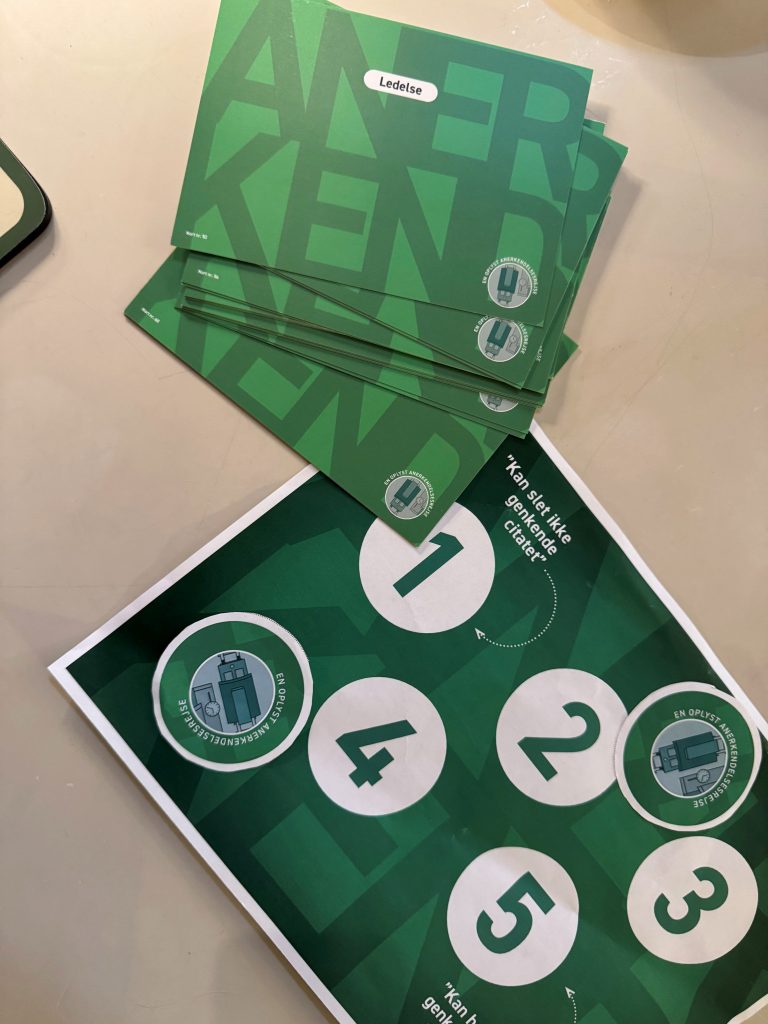Max Brix Bendtsen, intern.
Read the Danish version here.
During the summer, my class and I were informed that we would be doing an internship in week 47. We tried to find internship placements. Some of my classmates were placed in kindergartens, nurseries, or other public institutions, while others were interning with journalists, authors, or in other fields. Through my parents, I knew Pernille Steen Pedersen, whom I had spoken to a few times before. We had spoken about my interests in history, writing, leadership, and a bit of politics. The last time we spoke, I had told her about my internship, and Pernille immediately showed interest, suggesting that I consider doing my internship with her. I told her I would need some time to think it over. A week or maybe two passed as I continued searching for internship opportunities. While I was sitting and looking, I suddenly remembered Pernille. I sent her an email asking about an internship at the CBS Well-Being Lab. I received an almost immediate reply, and my internship was secured.
As November approached (week 47, 17-23 Nov.), I received an email outlining my tasks for the week. On the first day, Pernille was scheduled to give a presentation at the Danish Film School to the new cohort of students about her research on well-being and leadership. I took the bus early in the morning from Dragør to the Opera at Fabrikmestervej. I arrived at the school, sat down, and waited for Pernille to arrive, where I was introduced to her students who had come with her for the presentation. Pernille arrived with great energy and enthusiasm, of course, and we all entered a cinema hall with the typical red movie seats and a large screen. I had brought a notebook, my phone, and a pen to take notes and photos. One of the Film School’s lecturers stood up on stage and introduced Pernille to the school. After that, Pernille took the floor. To begin, she played the song “The Times They Are a-Changin’” by Bob Dylan to set the tone. The song is about progress in life and how the world around us changes. We listened to the first minute of it, and right there, you could feel the atmosphere shift in the room. There was a certain awareness floating around among the students at the school. It captured everyone’s attention.
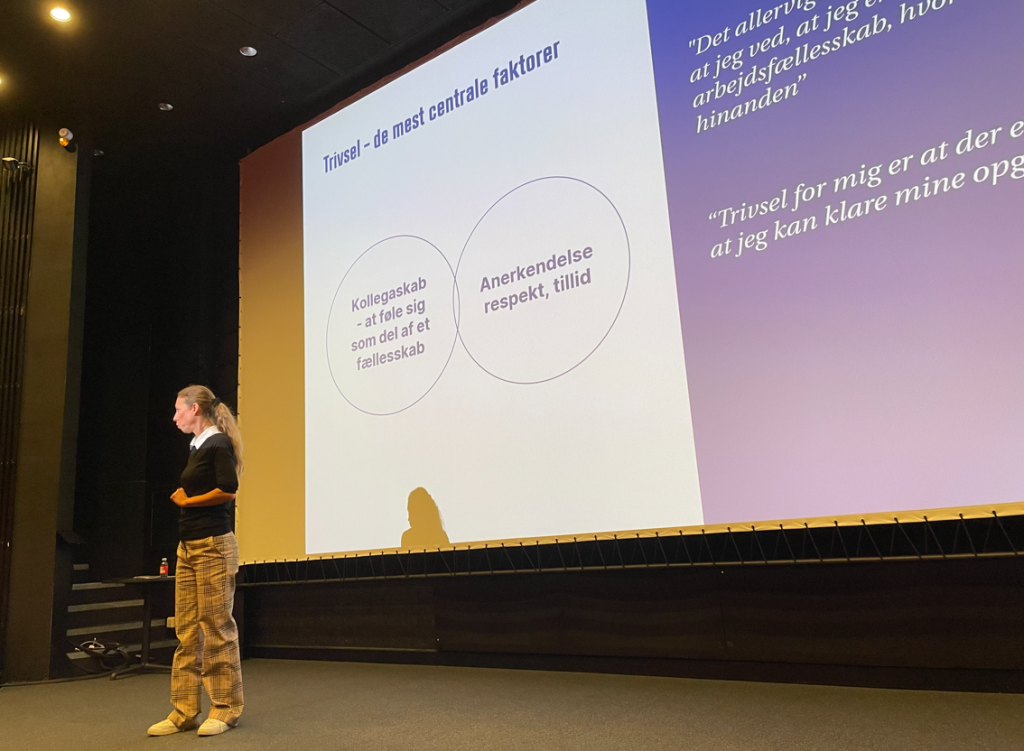
Pernille introduced the topic of leadership. Leadership is crucial in the film industry. Every film needs a director, a loyal and capable leader, to guide the actors and producers through the confusing and difficult task of making a film. Since the beginning of human communication, the world has had leaders and guides. Today, leadership is an integral part of our daily lives, in businesses, sports, and the world of music. The most important ideal of a leader is their connection with their employees. Without this connection, leadership cannot function, and the entire organization will fall apart, with each part heading in a different direction. Just like in an orchestra, where every musician has a conductor, the leader. The conductor must determine the tempo, melody, tone, and pitch. Without the conductor, an orchestra would collapse, and none of the musicians would know what to play. However, the conductor must also listen to each musician. If the violinist is unable to play their solo, the entire performance will fall apart. Not only will the violinist be unable to play their solo, but they may also feel ashamed for not meeting the expectations set by the conductor.
Leaders must, therefore, listen to their employees and, importantly, understand their needs and problems by asking questions and showing genuine interest. It doesn’t take much: “How has your day been?” or “What are you doing this weekend?” The smallest gestures can make an employee feel safer and more engaged in their work. Every employee has their preferred form of leadership, and how leadership is structured in a company may not suit everyone equally. Some employees need to be left alone to think, while others require moral support from their boss. The leader must also understand the daily lives of their employees and view things from their perspective. The leader should be someone the employee feels comfortable approaching if there are any issues or difficulties. In short, the leader should be the corporal – “[…] a corporal must remain neutral and equal!” – of the company. If a leader fails to perform as described, in my view, they are not a worthy leader, both based on the knowledge I gained from the presentation and my own personal beliefs. It should also be noted that there is no perfect leader, and there never will be. Great and famous leaders like Winston Churchill, Abraham Lincoln, Frederik VI, Anders Fogh Rasmussen, Martin Luther King Jr., etc. – in my personal opinion – were not perfect, either politically or socially.
During the presentation, Pernille referenced various artists and philosophers as examples, which further inspired me in the field of leadership, more so than I had been before. One of the first examples she shared was the words of the Portuguese-Jewish philosopher Baruch “de” Spinoza:
“Philosophers conceive the affects by which we’re torn as vices, which men fall into by their own fault. That’s why they usually laugh at them, weep over them, censure them, or curse them. They conceive men not as they are, but as they want them to be. That’s for the most part they’ve written Satire instead of Ethics.”
This helped with understanding the world around us and what is expected of each individual in the broader world, which can be linked to the song that was played at the start. The individual can easily see the world differently from how it actually is, influenced by everything from social media to one’s own teachers. It is important, especially for young people, to have a clearer view of how the world functions, as it is the next generation that will go out and experience the reality of the world. Pernille also mentioned an important point to remember: the world is vastly different for older generations – those 29 years old and up – compared to previous times. However, there will always be changes from generation to generation, but our generation, “Generation Z,” is entirely different. Everything from social media to modern entertainment has transformed our world, and we are the so-called “guinea pigs” who are going out to test it. Today, we need to be prepared to perform in ways that were unthinkable 20 years ago. This puts pressure on employees, especially when a leader is unaware of what is happening or has insufficient interest in their employees, and it becomes particularly problematic when young people, who may have only worked in a supermarket, enter a workplace with poor leadership. This leads to stress among employees, and when an employee cannot meet their leader’s demands, they may feel ashamed. Therefore – as reiterated – a leader’s genuine interest is crucial for the functioning of a company’s workforce.
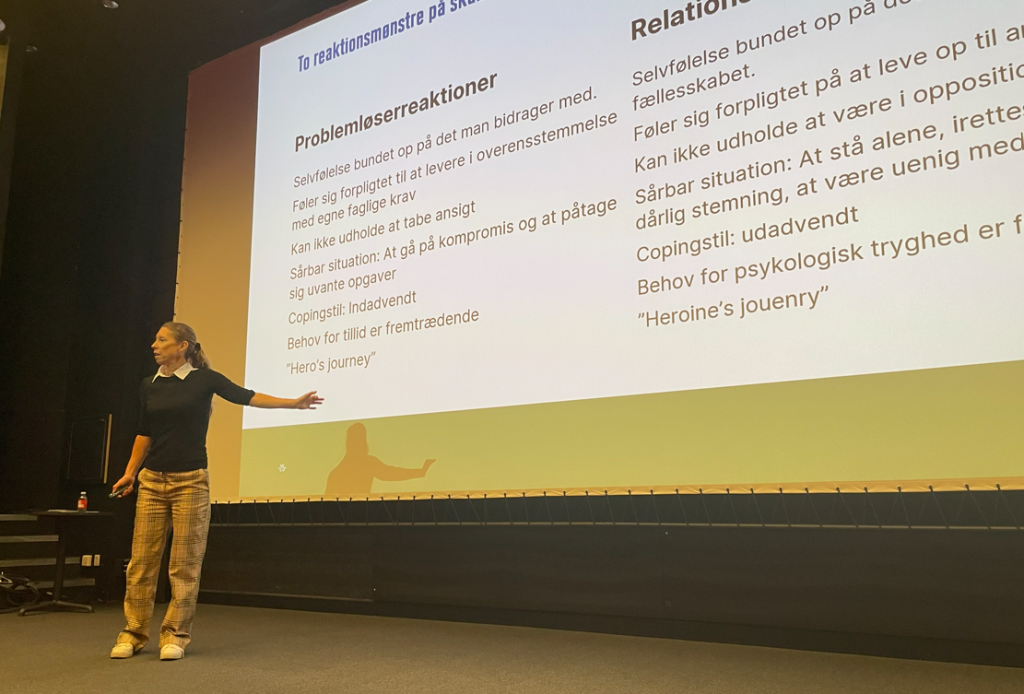
During the session, two of Pernille’s students, Maja Høgdal Dudzinski and Nanna Josefine Lützen Faaborg, shared their own experiences with stress, shame, and leadership with the audience. The audience found it very interesting to hear two people of their own age share their experiences, and it made it much easier for them to put things into perspective. After this, the students listened to an audio clip from a podcast released by the CBS Well-Being Lab, featuring singer Nicklas Sahl and actor Thure Lindhardt: The Art of Stepping into Someone’s Shoes. Pernille also brought along dialogue cards with different questions. The participants were divided into groups and given a stack of dialogue cards. Each card had a question at the top, and at the bottom, ways to respond. The students found it very engaging, and most wished they had more time for the activity. However, as the game eventually had to end, everyone gathered in the hall, and Pernille concluded her presentation. The students were also asked: “How did you find participating in this workshop?” In total, we received 49 responses, one from each student, and there was not a single negative or dissatisfied response. Both the instructors and I thought it was an absolutely fantastic presentation. I also interviewed Pernille about this report, which further inspired me. I believe this has been a wonderful week, and I would definitely recommend doing an internship with Pernille at the CBS Well-Being Lab.
